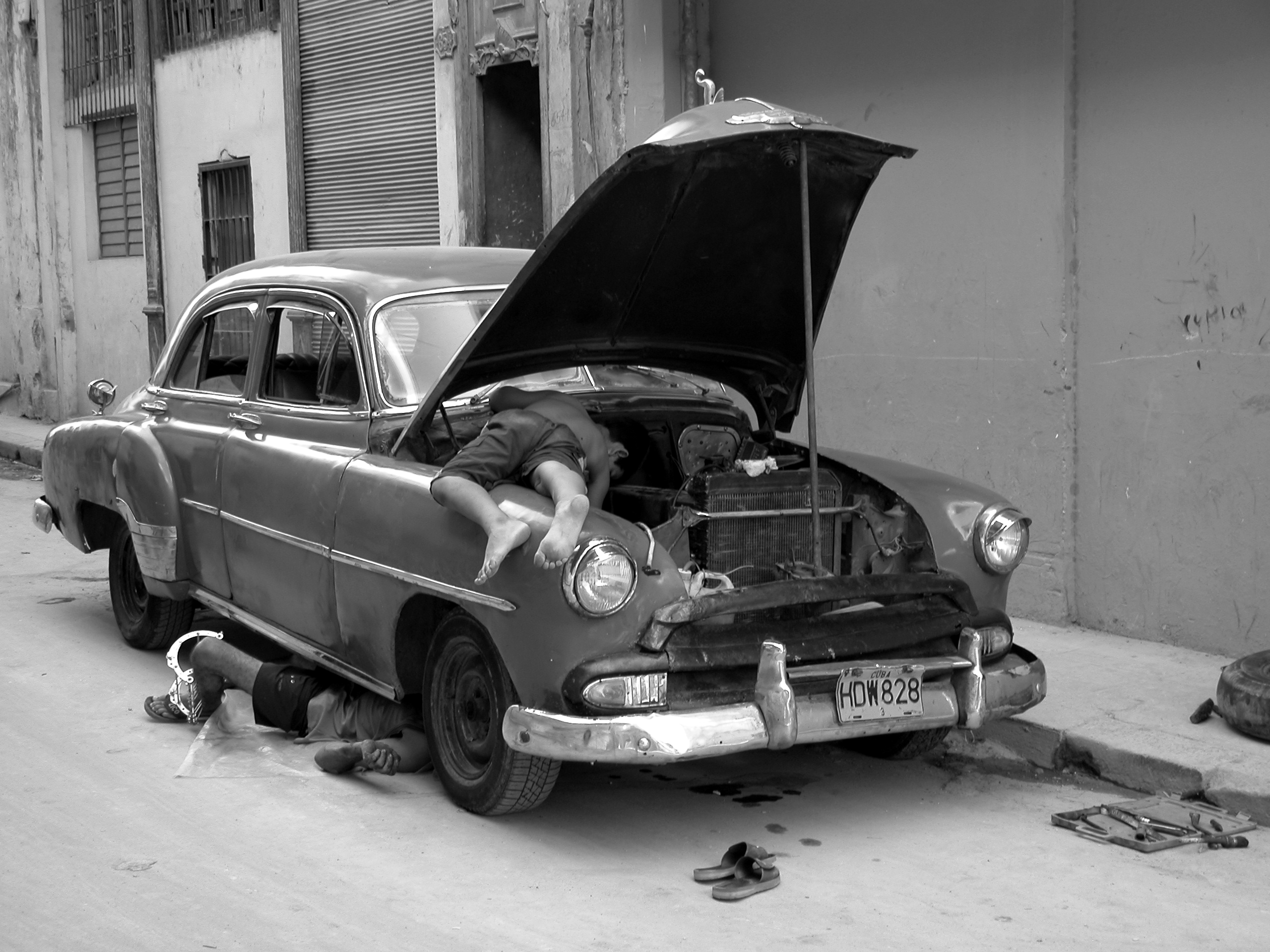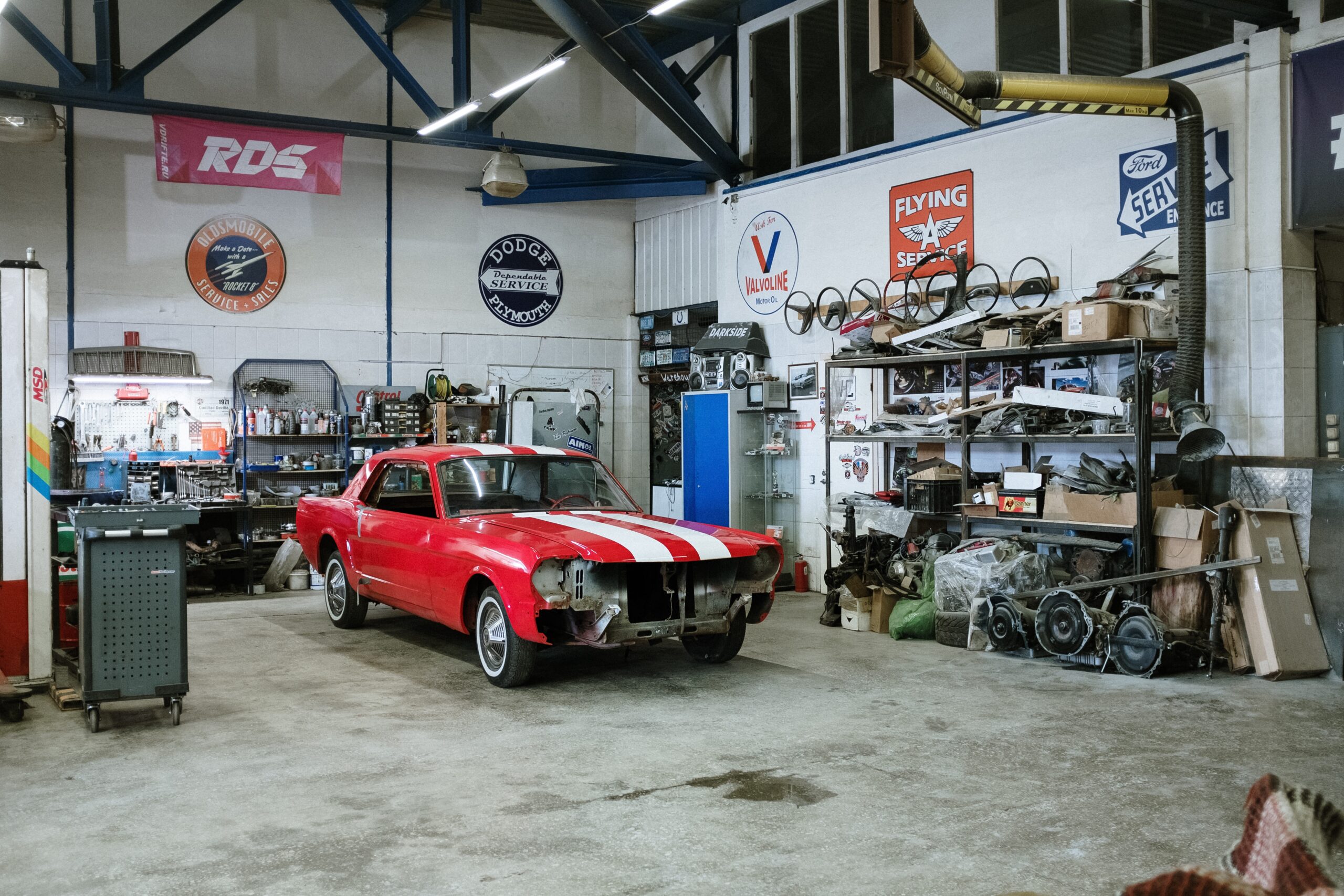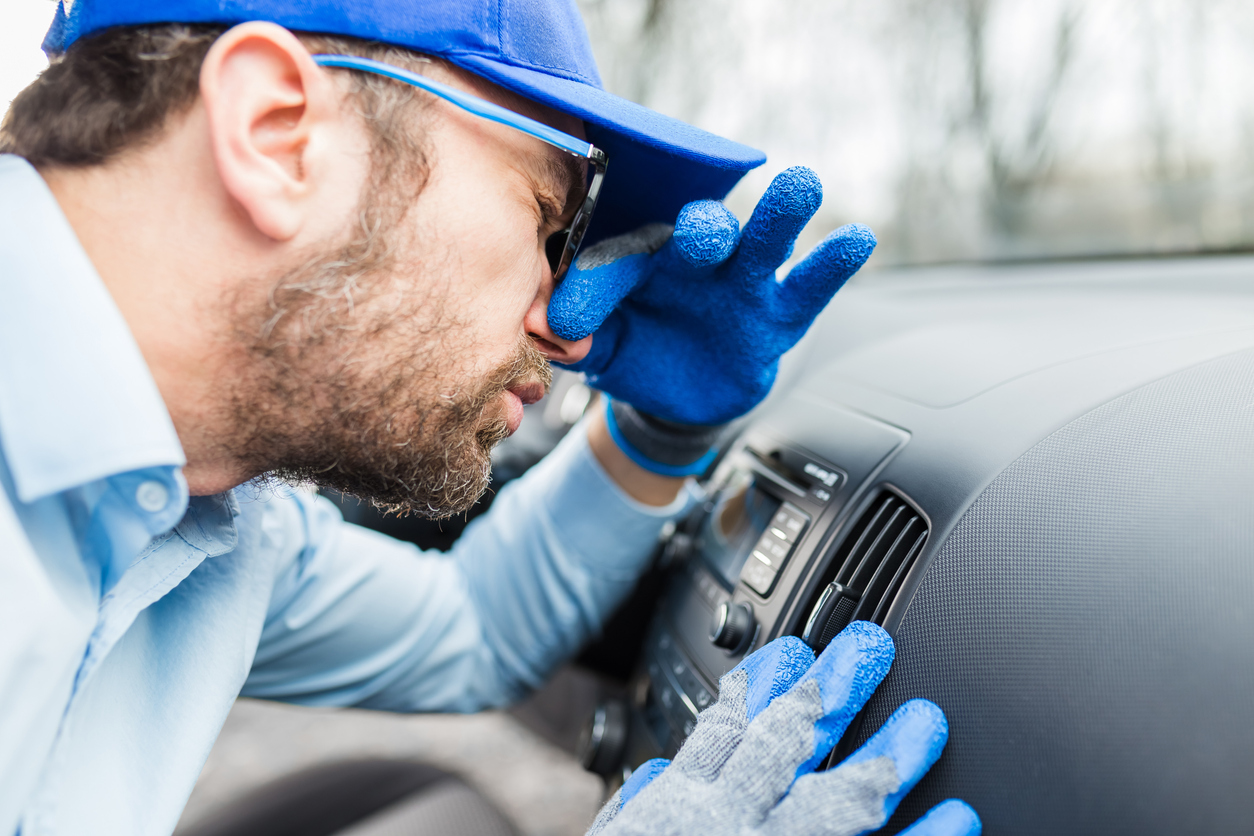7 Car parts replacements and repair tasks you should not do yourself

With the rising cost of doing car repairs, many people are now attempting to do repairs and tune up the vehicle on their own in a bid to save some money. They consult some tutorial videos and blogs that give guidelines on doing repairs by yourself. However, it is a risky endeavour that might end up causing more damage to the vehicle. This post will highlight car parts replacements you shouldn’t do yourself.
A good rule for anyone who owns a car would be: if anything seems off when driving, then take note of what makes them feel strange; maybe there’s too much pressure from behind causing wheelspin; maybe one side has lost some responsiveness because friction wasn’t applied evenly across its surface etc., which can lead up toward other issues like worn pads needing resurfacing.
To ensure safe and reliable driving, you must schedule a car repair whenever your brakes need attention. The mechanic will be able to fix any problems with their spark plugs or brake fluid as well – making sure everything works properly for an enjoyable ride!
The professional should also check whether the car is overheating, diagnose any transmission issues and assess any other risk you may face on the road. While some repairs are easy to do, such as changing out the oil, any other replacement should only be attempted by a mechanic.
Read more: DIY Car Maintenance and Repair Tasks
7 car repair tasks you shouldn’t do yourself
1. Fixing the radio or DVD Player
While it may seem like an easy task that you can do all by yourself, it is not. Installing a radio entails doing some electrical wiring. Therefore, before doing this type of repair, you should know what you are doing. Some dangers you may face are a short circuit. The short circuit may cause an electrical fire in your car. Additionally, you may do all the heavy lifting, only to find out that your radio does not work. In this case, you may be frustrated.
2. Timing belt
After some time, the timing belt is always subject to wear and tear. Many people may attempt to replace it themselves, and only a few do it successfully. Knowing that the timing belt is a critical component that keeps the engine operating is vital.
Furthermore, replacing the timing belt requires almost half of your engine to be disassembled and assembled entirely. In your attempt to replace the timing belt, you may end up causing irreparable damage to the engine.
3. Windshield repairs
A broken windshield might seem like a small problem. However, any cracks that appear on your windshield could mean great harm. Therefore, get it repaired quickly by a trained mechanic if it gets broken. Additionally, taking swift action may save you from the cost of having to replace the windshield entirely.
In another case, any attempt to repair the windshield all on your own might end up causing an even bigger crack, and this will mean you have to spend even more money. It is therefore advisable to take the windshield to a certified mechanic.
4. Radiator repairs and replacements
A radiator is an essential component of the engine. Without it, your vehicle will undoubtedly overheat, and this may cause severe engine malfunctions that, in most cases, are beyond repair. In other words, the radiator is the heart of your engine’s cooling system. Therefore, ensure you know exactly what you are doing when attempting to repair.
Replacing a radiator is especially tricky because you have to connect the radiator to the car’s engine, and this connection must be tight and secure. If you do not get it right, things may go sideways, and your engine might blow up.
5. Engine diagnostics
When you are in your vehicle and notice some strange noises from under the hood, the check engine light pops up; it is only natural to get worried. Many car owners do not know what is causing the strange noises and therefore only end up poking around under the vehicle’s hood.
Consequently, it is paramount not to go around poking because you may end up causing more damage to the car’s engine.
In truth, the engine light could also turn on only because the gas cap is not tightly screwed or the car’s engine is overheating. In addition, you may need a change of brake fluid, or maybe the spark plugs need some changing. However, do not speculate; take the car to the professional for in-depth engine diagnostics.
6. Paint and bodywork
When repairing a damaged body, an extensive process is involved, and it is tedious. There are a lot of fumes required, and to apply, you must be well trained. Additionally, having the special tools for a paint job is vital because most fumes are toxic. If you do not have the special tools, you may have respiratory problems. It is only natural to want to save some bucks by repairing yourself; however, this task should only be left to the professionals.
7. A/C system restoration
Modern vehicles have an extremely complex air conditioning system that requires a keen eye. The process of repairing it is extensive, tedious and almost impossible for an amateur. Once the A/C seizes to function, you should take it to a trained mechanic who will decide on the best course of action.
Additionally, the A/C is connected to other sections of the vehicle that are just as delicate. It connects to the air filter, compressor, evaporator, condenser and many other components. Hence, if you get a repair done incorrectly, the air filter may spoil, and other repercussions will follow.
Frequently Asked Questions
What Car repair tasks you shouldn’t do yourself?
There are many car parts not recommended for DIY replacement. Here are a few:
- Windshield repairs
- Repairing the radiator
- Repairing the shock absorber
- Fixing the head gasket
- Diagnosing transmission issues or doing a change of transmission fluid unsupervised.
- The transmission fluid is also a delicate component.
• What is the hardest part to replace on a car?
Engine replacement tasks are the hardest and it is among car parts replacements you shouldn’t do yourself. Even trained professionals often find it hard to replace a bad engine with a new one. However, cars are expensive. It is always better to replace the car’s engine than buy a new car.
• Is it better to repair your own car?
No, it is never better to repair your car. To repair a vehicle, one must first carry out an extensive diagnostic process to determine precisely the problem. You may also attempt to look into the gearbox, but the problem is not here. This process often involves using expensive diagnostic equipment that only professionals have the technical knowledge of. Therefore, it is best to take it to a professional else; you may end up doing more harm than good.
Conclusion
A professional should handle vehicle maintenance practices involving the gearbox and brakes. Before proceeding to do a car repair by yourself, it is essential to know the consequences of a failed attempt. Whether the brake pads are misbehaving or there is a problem with the braking system, only a mechanic with expertise can help you properly. Additionally, taking the vehicle to a professional will extend the engine’s life. To tune up the car, consult a trained professional for maintenance and fix up any broken part.
Starting problems? Top 9 reasons why your car does not start
Cars fail to start faster than they used to because of various reasons. It is a common symptom associated with various problems within your engine. But one thing to be glad about is that these problems are repairable. However, it…
Read more
Best tips for setting up your own home car workshop
A home garage can be used for basic maintenance and vehicle upkeep. That will save you long trips to the mechanic and possibly save you some money. Having a garage workshop or garage at home can have its perquisites for…
Read more
What’s that smell from my car? Top causes and cures
Many people often know there is something wrong with the engine from the sounds under the hood. However, you can also use your other sensory organ, the nose, to diagnose problems with your engine. Any smell that is out of…
Read more
Top guides
- Injection system in the car explained simply - parts and function of the injection...
- Maintenance and repair of electric cars: what can your normal garage do?
- Increasing performance with chip tuning: benefits, risks and tips
- Guide: Computer systems and software in your car
- Which electric car parts need repair or replacement most often?
- What is a solid-state battery for electric cars?
- All about engine sensors: from combustion engines to electric cars
- Increase the range of an electric car: How every electric car gets further
- Electric car battery life: How to extend the life of the battery
- What is the compression of a car engine?
- This is the cubic capacity of a car engine
- Internal combustion engine valves: function, defects and repair
- Core components of the internal combustion engine - parts and functions
- Engine lubrication in cars: components, function and defects
- The environmental impact of manufacturing new car parts
- All about pollutant classes and their role in environmental protection
- Engine overhaul: What is an engine overhaul and how much does it cost?
- OEM car parts manufacturing: the key components of the sector
- Understanding engine power - insight into the technology of the car engine
- The steering system of the car - structure and operation
- The car's braking system - structure, parts and function
- Engine types in the car: V-engine, in-line engine and boxer engine explained
- 8 tips before buying a used electric car
- Distinguish OEM parts, aftermarket and counterfeit car parts
- The EPC indicator light is on or flashing: What to do?
- Master brake cylinder: function, defect detection and repair
- OEM car parts for hybrid and electric cars
- Used youngtimer and classic car parts - the best tips
- Cruise control: Function and repair of the cruise control system in the car
- Exhaust system: Everything you need to know about parts and function of the exhaus...
- Locking system: security and reliable locking on the car
- The engine's air intake system - parts, function and replacement
- Brake caliper defective? How to replace it yourself
- Fuel system: parts of the fuel supply from the tank to the cylinder
- Air conditioning system: function and components of your car air conditioning syst...
- The clutch: structure and function explained simply
- Detecting and replacing a defective fuel pump
- Surprised? So many pumps work in your car
- The most common causes of a defective electric car
- The 6 most important safety components of your car
- Identify and repair a defective starter in a flash
- 5 common chassis problems and how to fix them
- 10 unknown car parts that many drivers do not know about
- Engine cooling: function and important components of the cooling system
- Differences between petrol and diesel engines
- All-wheel drive: How the mechanics and components of all-wheel drive work
- Engine control unit car: Everything about components and functioning
- Defective engine control unit: causes, symptoms and repair
- HP vs. torque: What is the difference between power and torque?
- EV motors basics: How are they built, how they work and differ from combustion eng...
- The chassis: overview and function of all suspension components
- Used electric car parts: What to look out for
- The importance of the chassis number when buying used car parts
- ABS pump defective? Function, repair and replacement
- Injection nozzle defective? Diagnosis, cleaning and changing the injection nozzles
- Alternator defective? What symptoms occur and when to change the component
- Water pump defective? Symptoms and how to repair or change it
- Steering gear defective? What are the symptoms and when should the component be re...
- Lambda sensor defective? What are the symptoms and can I clean the sensor?
- Defective air conditioning compressor - what are the symptoms and when should the ...
- Intake manifold defective? Replace gasket or clean manifold?
- Exhaust manifold leaking? Symptoms of a defective exhaust manifold or gasket and w...
- Turbocharger defective? Repair or change?
- Servo pump defective? What symptoms occur and when you should change the part
- Clutch broken? - These symptoms indicate a defect in the clutch
- Common problems and repair of defective drive shafts
- Causes of engine noise and what to do about it?
- What can car diagnostic devices do and do I need an OBD scanner?
- When and how to replace brake discs and brake pads
- Brake warning lamp lights up - causes and what to do?
- EGR valve defective: Avoid engine problems and clean EGR valve
- Improve fuel consumption: How your car uses less fuel
- Squeaking brakes: Why brakes squeak and how to get rid of it
- Safely jacking up a car: How to jack up a car using a jack and jack stands
- How a defect in the muffler becomes noticeable and how it is replaced
- E-car motor: These electric car parts you can replace yourself
- Engine overheated: What you should do if the engine overheats
- Engine check lamp lights up: What you should do as a motorist
- The engine code: What does the code mean and where can I find it on the car?
- Tools for car repair: These 10 tools you should own
- Car repair mistakes: These are the 7 most common car repair mistakes
- The gearbox code: What does the code mean and where can it be found on the gearbox...
- Used parts: How to check the quality of used car parts
- Vehicle transmission: What is the difference between manual and automatic transmis...
- Mileage: This is how mileage affects used spare parts
- Car recycling: What happens to the car when it is recycled?
- OEM original parts or aftermarket: these are the differences
- Advantages and disadvantages of new and used car parts
- Starting problems? Top 9 reasons why your car does not start
- What’s that smell from my car? Top causes and cures
- Advantages of shopping scrap car parts online vs. going to the local breaker yards...
- 10 most frequently purchased car parts from car breakers/junkyard
- Important car parts and their function
- Common car engine problems: Diagnosing, Troubleshooting and Fixes
- Best tips for setting up your own home car workshop
- 7 Car parts replacements and repair tasks you should not do yourself
- DIY Car Maintenance and Repair Tasks
- Guide: How to Maintain and Protect Your Car Engine
- Best practices for Engine Rebuild
- Common Causes of Rear Differential Noise, troubleshooting, and how fix it
- Common Causes of power steering noise and how fix it
- Your Guide to Car Engine Components and Functions
- Licence plate and VIN information
- Top 10 of the most popular brands in second-hand autoparts
- France is just so cool


